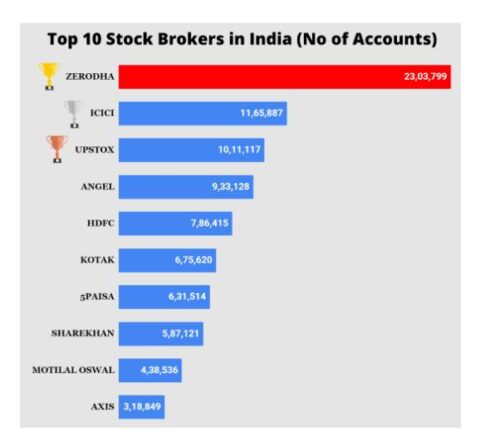Equities
What is the stock market?
- The stock market refers to public markets that exist for issuing, buying, and selling stocks that trade on a stock exchange or over-the-counter.
- An efficiently functioning stock market is considered critical to economic development, as it gives companies the ability to quickly access capital from the public.

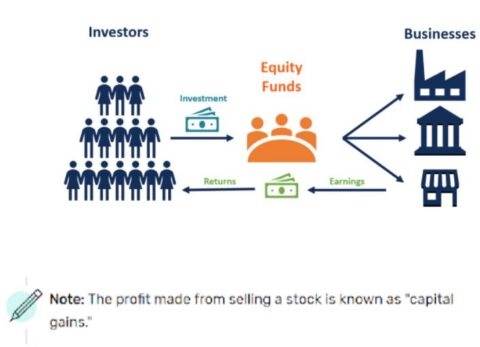
What is a stock?
- A stock is a financial instrument that represents ownership in a company or corporation and represents a proportionate claim on its assets (what it owns) and earnings (what it generates in profits).
- Stocks are also called shares or a company’s equity.
What is a stock?
- Stock ownership implies that the shareholder owns a slice of the company equal to the number of shares held as a proportion of the company’s total outstanding shares.
- For instance, an individual or entity that owns 100,000 shares of a company with one million outstanding shares would have a 10% ownership stake in it.
- Most companies have outstanding shares that run into the millions or billions.
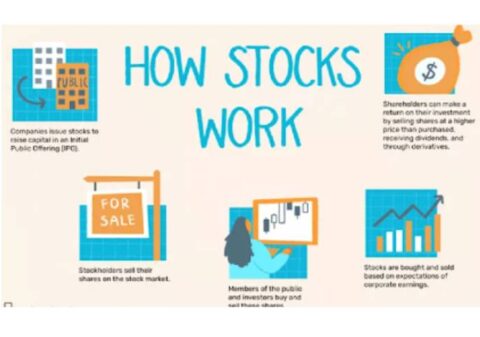

Is investing in stocks risky?
- If the thought of investing in the stock market scares you, you are not alone.
- Individuals with very limited experience in stock investing are either terrified by horror stories of the average investor losing 50% of their portfolio value—for example, in the two bear markets that have already occurred in this millennium—
- or are beguiled by “hot tips” that bear the promise of huge rewards but seldom pay off. It is not surprising, then, that the pendulum of investment sentiment is said to swing between fear and greed
- The reality is that investing in the stock market carries risk, but when approached in a disciplined manner, it is one of the most efficient ways to build up one’s net worth.
- While the value of one’s home typically accounts for most of the net worth of the average individual, most of the affluent and very rich generally have the majority of their wealth invested in stocks.
Stock Industry Sectors
You can also classify stocks based on the characteristics of the companies that issued them. These different groupings meet the varying needs of shareholders. Stocks can be grouped by industry sector, including:
- Basic materials: Companies that extract natural resource
- Conglomerates: Global companies in different industries
- Consumer goods: Companies that provide goods to sell at retail to the general public
- Financial: Banks, insurance, and real estate companies
- Healthcare: Healthcare providers, health insurance, medical equipment suppliers, and drug companies
- Industrial Goods: Manufacturing companies
- Services: Companies that get products to consumers
- Technology: Computers and software
- Utilities: Electric, gas, and water companies


Stock Groups
Growth Stocks
- Stocks can also be grouped based on potential and value. Growth stocks are expected to experience rapid growth, but they usually don’t pay dividends.
- Sometimes, the companies may not even be making a profit yet, but investors believe the stock price will rise. These are typically younger companies that have much room for business growth and additions to their business model.
Stock Groups
Value Stocks
- Value stocks pay dividends, because the price of the stock itself is not expected to rise much.
- These tend to be large companies that aren’t new, so the market ignores them. Savvy investors see the prices as undervalued for what the companies deliver.
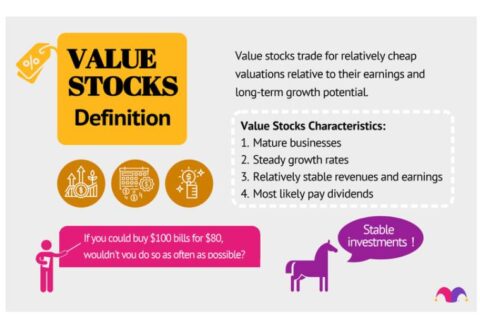
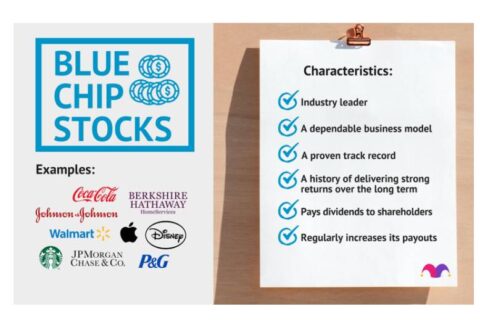
Stock Groups
Blue-Chip Stocks
- Blue-chip Stocks are fairly valued and might not grow quickly, but they have proven to be reliable companies in stable industries over the years.
- They pay dividends and are considered safer investments than growth or value stocks. They are sometimes called “income stocks.
Investing in the stock market
- One of the best ways for beginners to get started investing in the stock market is to put money in an online investment account, which can then be used to invest in shares of stock or stock mutual funds.
- With many brokerage accounts, you can start investing for the price of a single share.
Zerodha – Online stock trading at lowest prices from India’s biggest stock broker – Zerodha
ICICIdirect – Online Share Trading in India at low brokerage
